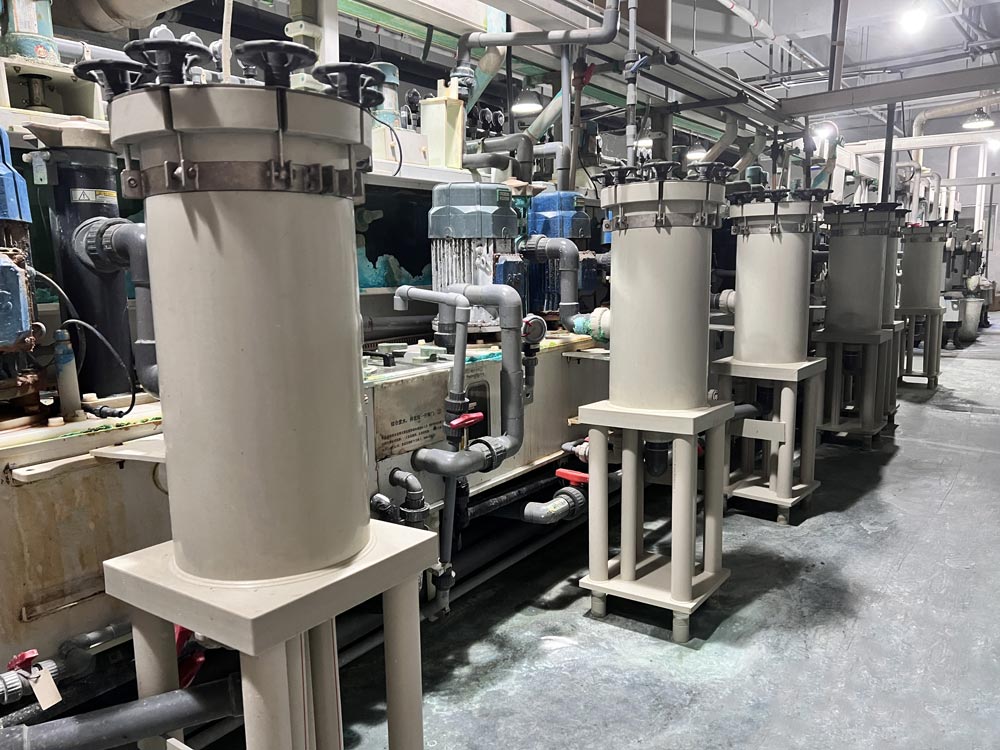# Electroplating Filter: Enhancing Efficiency and Purity in Metal Deposition Processes
Electroplating is a critical process in various industries, from automotive to electronics, where metal deposition is essential for enhancing durability, conductivity, and aesthetics. However, achieving high-quality electroplating results requires more than just the right chemicals and equipment. One often-overlooked yet vital component in this process is the electroplating filter. This article explores how electroplating filters enhance efficiency and purity in metal deposition processes.
## The Role of Electroplating Filters
Electroplating filters are designed to remove impurities and contaminants from the plating solution. These impurities can include particulate matter, oils, and other foreign substances that can negatively impact the quality of the metal deposition. By ensuring a clean and consistent plating solution, electroplating filters help maintain the integrity of the plating process, leading to better adhesion, uniformity, and overall quality of the plated metal.
### Types of Electroplating Filters
There are several types of electroplating filters available, each suited for different applications and levels of filtration:
– Cartridge Filters: These are commonly used for general-purpose filtration and are effective in removing larger particles and contaminants.
– Bag Filters: Ideal for high-flow applications, bag filters can handle larger volumes of plating solution and are often used in industrial settings.
– Depth Filters: These filters are designed to capture smaller particles and are often used in applications requiring high-purity plating solutions.
– Membrane Filters: Offering the highest level of filtration, membrane filters are used in applications where even the smallest particles must be removed.
## Benefits of Using Electroplating Filters
Incorporating electroplating filters into the metal deposition process offers several key benefits:
– Improved Plating Quality: By removing contaminants, filters ensure a smoother and more uniform metal deposition, resulting in higher-quality finishes.
– Extended Bath Life: Clean plating solutions last longer, reducing the frequency of bath changes and lowering overall costs.
– Reduced Defects: Filters help minimize defects such as pitting, blistering, and uneven plating, leading to fewer rejects and reworks.
– Enhanced Efficiency: A clean plating solution allows for more efficient use of chemicals and energy, optimizing the overall electroplating process.
### Maintenance and Best Practices
To maximize the effectiveness of electroplating filters, regular maintenance is essential. This includes routine inspections, timely replacement of filter elements, and monitoring of the filtration system’s performance. Additionally, selecting the right type of filter for your specific application is crucial to achieving the desired results.
## Conclusion
Electroplating filters play a pivotal role in ensuring the efficiency and purity of metal deposition processes. By removing contaminants and maintaining a clean plating solution, these filters contribute to higher-quality finishes, extended bath life, and reduced defects. Whether you’re in the automotive, electronics, or any other industry that relies on electroplating, investing in the right filtration system can significantly enhance your overall process and outcomes.
Understanding the importance of electroplating filters and implementing best practices in their use can lead to more efficient operations and superior product quality, making them an indispensable component in the world of metal deposition.
Keyword: electroplating filter

Comments are closed